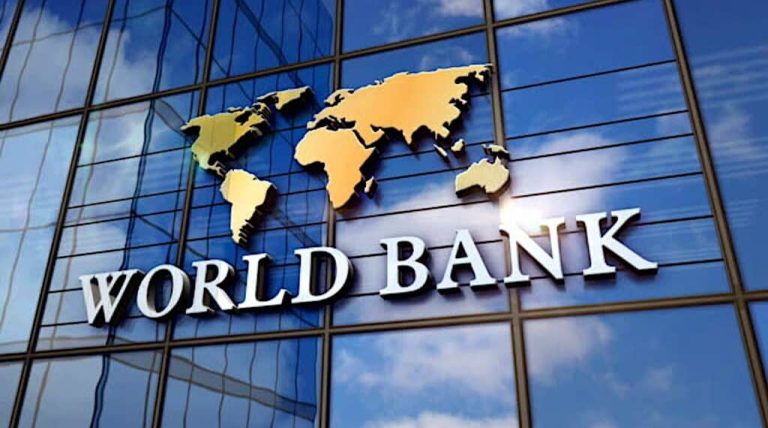
The World Bank has raised serious concerns regarding the discovery of $32 million in unaccounted funds linked to a water sector project in Nigeria.
This issue has raised alarms about potential embezzlement and poor financial management, casting a shadow over the project’s effectiveness. The discrepancies were revealed following a thorough forensic examination of the project’s financial records, as outlined in the World Bank’s FY2024 Sanctions System Annual Report.
The funds, originally designated to enhance Nigeria’s water infrastructure, were not accounted for as intended, prompting the World Bank to take swift action to protect the project’s integrity and ensure that it meets its goals.
In response to these financial irregularities, the World Bank engaged in discussions with key project stakeholders, including Nigeria’s Task Team Leader, Operations Manager, and Financial Management Specialist. The aim was to identify steps to resolve the discrepancies and prevent any further mismanagement. In order to mitigate future risks, the World Bank directed the Central Bank of Nigeria to reimburse a total of $22 million, while leaving an additional $6 million in the project account to cover future operational expenses. The financial operations of the project were then restricted to direct payments only, as a preventive measure to avoid further irregularities.
According to a report obtained by Sunday PUNCH, the World Bank’s Integrity Vice Presidency (INT) followed up on the risks identified, which included the $32 million in unaccounted funds. INT worked closely with the Nigerian project team, including the Task Team Leader, Operations Manager, Programme Leader, and Financial Management Specialist, to outline specific actions aimed at minimizing the risk of embezzlement. Following these discussions, the Nigerian authorities were instructed to return the full $22 million to the project’s account, and the remaining balance was restricted to direct payments.
The report further disclosed that the project account retained a balance of $6 million, which was slightly higher than the projected costs for the remaining project work. This precaution was intended to safeguard the proper allocation of resources for the final stages of the water project.
In a related matter, the World Bank has also imposed a 1.5-year debarment on a Nigerian engineering firm and its managing director for fraudulent activities tied to the Nigeria Erosion and Watershed Management Project (NEWMAP). The firm, which was part of a joint venture, was found guilty of misrepresenting the availability of staff and the role of one of its JV partners during the bidding process for a $1.22 million contract. The misrepresentation, which violated World Bank Consultant Guidelines, led to the firm’s exclusion from participating in future World Bank-financed projects for the duration of the sanction period.
The World Bank’s Integrity Vice Presidency (INT) also uncovered other fraudulent practices during the execution phase of the project, including the false claim that a partner in the joint venture played an active role in the work, when in reality, the partner had no involvement. This violation was compounded by the firm’s attempt to justify the inclusion of the partner based on political connections, an explanation the World Bank deemed unsubstantiated.
As part of the sanctions, the engineering firm and its managing director are now ineligible to participate in any World Bank-financed contracts for a period of 1.5 years. This ban extends to all entities directly or indirectly affiliated with the firm. In addition to the financial penalties, the firm must implement an integrity compliance program to be considered for reinstatement after the debarment period.
The World Bank’s commitment to maintaining transparency and accountability was further demonstrated by its investigation into another firm, Diyokes Consultants Limited, based in Enugu State, Nigeria. This firm, along with its associated individual, Innocent Diyoke, was also found guilty of fraudulent practices related to a World Bank-funded project and is subject to the same 1.5-year ineligibility period.
Amidst these financial concerns, Nigeria’s government, under President Bola Tinubu’s leadership, has secured a significant amount of loans from the World Bank, totaling $6.45 billion over the last 16 months. This figure is expected to rise further, as three new loans totaling $1.57 billion have recently been approved for various projects. Over the next five years, the World Bank is set to approve loans amounting to approximately $24.09 billion for various development initiatives in Nigeria.
These loans are intended to finance a range of projects, including those related to power, women’s empowerment, education, renewable energy, economic stabilization, and resource mobilization. However, the increasing debt burden has raised concerns among Nigerians, especially given the country’s long-standing issues with infrastructure decay and high unemployment rates. While some citizens recognize the need for loans due to limited resources and a large population, many question the justification for borrowing, given the poor track record of previous loans and the ongoing challenges faced by the nation.





